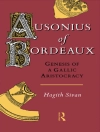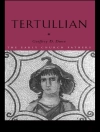A richly documented investigation of a well-known figure in Swiss history who crossed diverse social and cultural boundaries in pre-modern Europe.
During the turbulent events of Europe’s Thirty Years’ War, both ruthlessness and adaptability were crucial ingredients for success. In this engaging volume, Randolph C. Head traces the career of an extraordinarily adaptable and ruthless figure, George Jenatsch (1596-1639). Born a Protestant pastor’s son, Jenatsch’s career took him from the clergy to the military to the nobility. A passionate Calvinist in his youth, he converted to Catholicism and prudenceas his power grew. A native speaker of the Romansh language, he crossed the boundaries of language and local loyalty in his service to France, Venice, and his own people. Violence marked every turning point of his life. After fleeing the ‘Holy Massacre’ of Protestants in the Valtellina in 1620, Jenatsch helped assassinate the powerful Pompeius von Planta, in 1621, using an axe. He killed his commanding officer in a duel in 1629, and his own life ended in atavern in 1639 when he was murdered — with an axe — by a man dressed as a bear.
After his death, myth took over. Rumors spread that Jenatsch was killed by the
same axe that he had wielded on von Planta — and from there the story only got better, culminating in Conrad Ferdinand Meyer’s celebrated 1876 novel,
Jurg Jenatsch. This study meticulously traces the social boundaries that characterized seventeenth-century Europe — region, religion, social state, and kinship — by analyzing a distinctive life that crossed them all.
Professor Randolph C. Head teaches European History at the University of California, Riverside and is the author of
Early Modern Democracy in the Grisons.
قائمة المحتويات
Introduction
A Brief Life of George Jenatsch
‘Georgius Jenatius, Engadino-Rhetus’: Mapping an Identity among Region, Nation, and Language
From Religious Zealot to Convert
‘Something That Every Goatherd Can Do’: Pastor, Soldier, and Noble
Hidden Boundaries?: Behind Conventional Views of Jenatsch
Jenatsch after 1639: Storytelling in Biography and Myth
Epilogue: The Past, the Present, and Magic Bells












